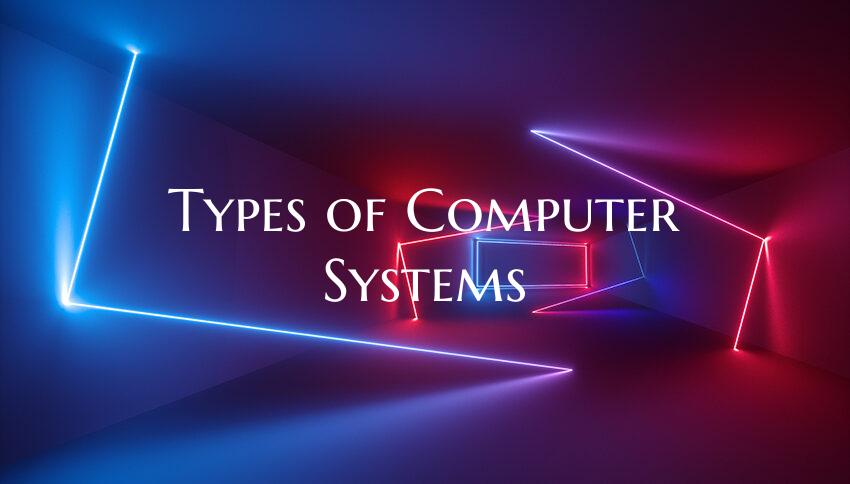Types of Computer Systems
When it comes to computer systems, there are several types that cater to the diverse needs and requirements of users. These systems can vary in terms of size, functionality, and applications. Understanding the different types of computer systems can help individuals and organizations choose the most suitable option for their specific needs. Here are some of the common types of computer systems:
1. Personal Computers (PCs): Personal computers are perhaps the most common type of computer system, designed for individual use. They are versatile machines that can perform a wide range of tasks such as word processing, internet browsing, gaming, and more. PCs come in various forms including desktops, laptops, and tablets.
2. Workstations: Workstations are high-performance computers typically used for specialized tasks such as graphic design, video editing, and scientific simulations. They are more powerful than standard PCs and are often used by professionals in fields that require advanced computing capabilities.
3. Servers: Servers are computers designed to provide services or resources to other computers on a network. They can store and process data, host websites and applications, manage networks, and much more. Servers come in different types such as file servers, web servers, and database servers.
4. Mainframe Computers: Mainframes are large, powerful computers used by organizations to process large volumes of data and handle complex applications. They are known for their reliability, scalability, and security features, making them ideal for industries like finance, healthcare, and government.
5. Supercomputers: Supercomputers are the most powerful and fastest computer systems available. They are used for intensive calculations and simulations in fields like weather forecasting, scientific research, and cryptography. Supercomputers are built with high-performance components to achieve unparalleled processing speeds.
6. Embedded Systems: Embedded systems are specialized computer systems designed to perform specific functions within a larger system. They are commonly found in everyday devices such as smartphones, smart appliances, cars, and industrial machinery. Embedded systems are often optimized for efficiency and reliability.
7. Smartphones and Tablets: Smartphones and tablets are mobile computer systems that have become essential tools for communication, entertainment, productivity, and more. They are equipped with touchscreens, mobile operating systems, and a wide range of apps to meet the needs of users on the go.
Understanding the different types of computer systems can help individuals and organizations make informed decisions when selecting the right system for their needs. Whether it's for personal use, business operations, scientific research, or any other purpose, choosing the appropriate type of computer system is crucial for optimal performance and productivity.

